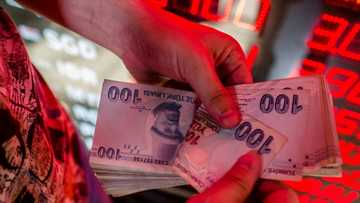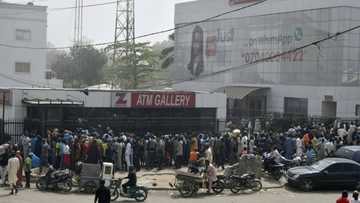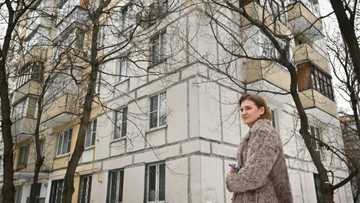Nigerians struggle with costs of living as election draws near
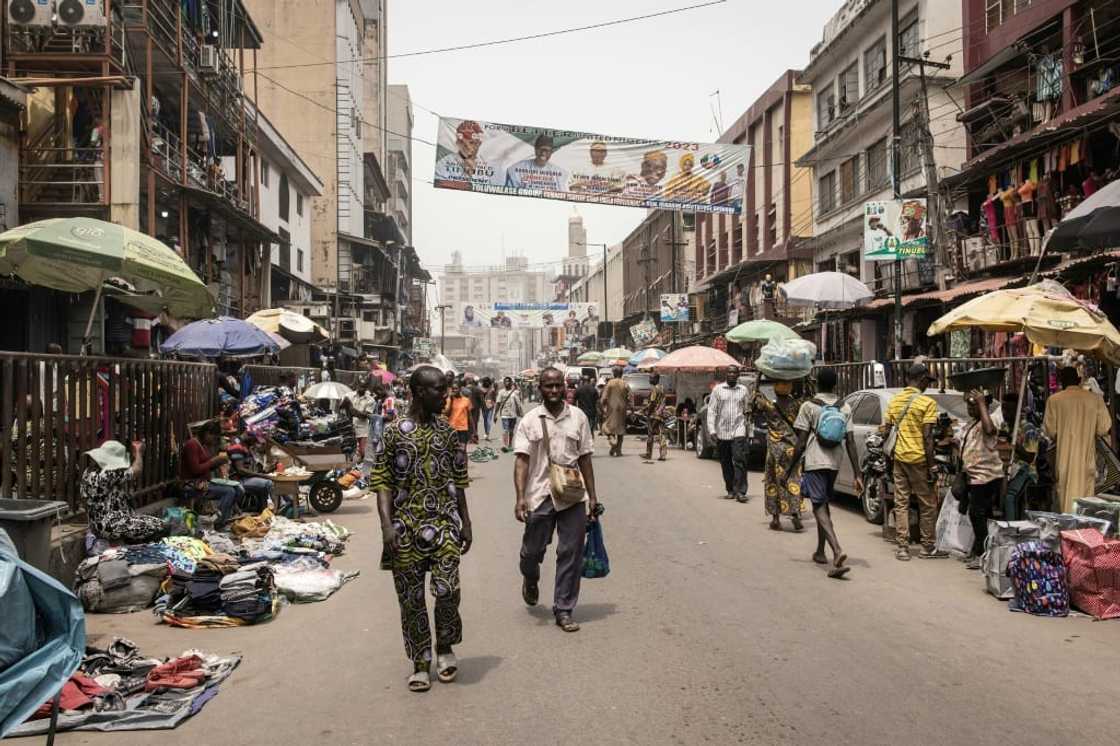
Source: AFP
PAY ATTENTION: Never miss breaking news – join Briefly News' Telegram channel!
Like millions of fellow Nigerians, Rotimi Bankole says he wants to use Saturday's presidential elections to push for a better life in his oil-rich but crisis-ridden country.
Double digit inflation, weak economic growth and mounting insecurity are major issues for voters on February 25 when they choose a successor to incumbent President Muhammadu Buhari, due to step down after two terms allowed by law.
"Nigeria has been so difficult to cope and live in," Bankole said. "Survival has been tough."
For years, the 54-year-old struggled to take care of his family of five while doing two jobs.
Recently, he took on a third job -- driving a taxi -- but still that could only make an extra 5,000 naira ($11) -- hardly enough in a country where cost of living has spiralled to record levels.
Africa's largest economy and the continent's top oil producer, Nigeria has resources and wealth, but the global pandemic and the economic fallout from the Ukraine war hit the country hard in Buhari's last term.
PAY ATTENTION: Click “See First” under the “Following” tab to see Briefly News on your News Feed!
Inflation is at 21.8 percent, the naira currency has weakened and the World Bank says more Nigerians are now living below the poverty line.
Compounding economic hardships, the country has been hit with fuel shortages and also a scarcity of cash after the central bank began to swap old naira notes for new bills.
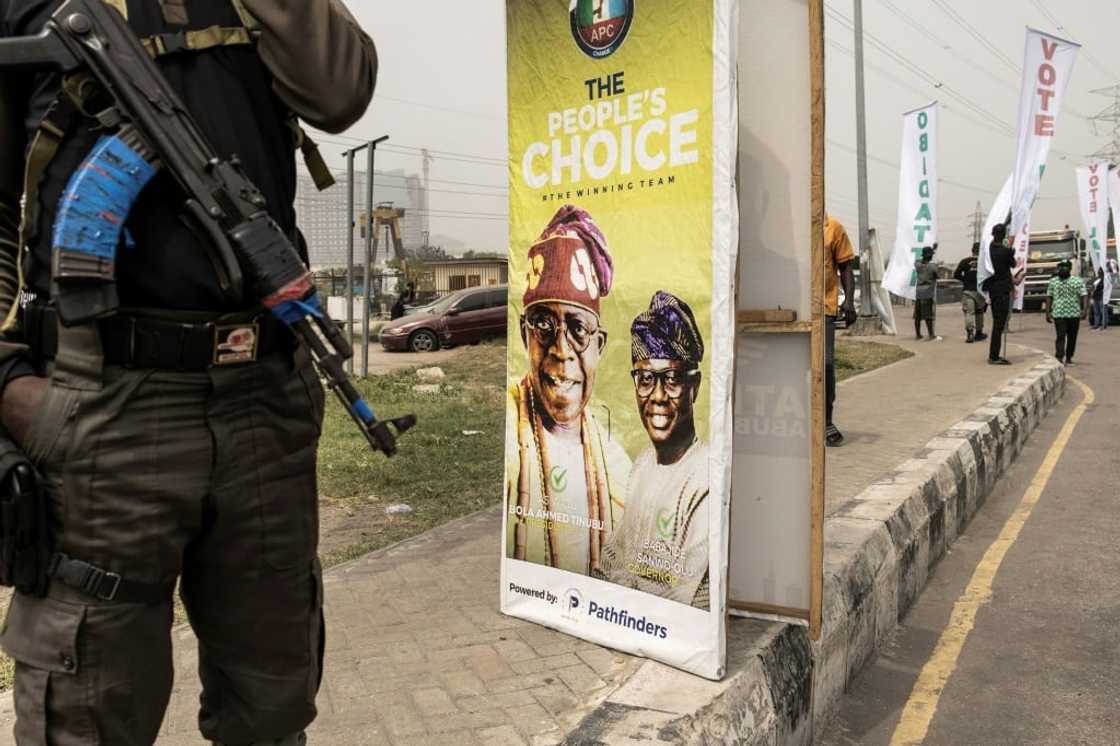
Source: AFP
A chronic shortage of cash has created lines outside banks and triggered protests in some cities, even as the central bank says the policy is needed to curb the amount of cash outside the banking system.
Bankole started driving a taxi two months ago, but the recent major fuel and cash scarcity has compounded his misery.
He spends long hours on queues at petrol stations, paying as much as 330 naira for a litre as against 165 previously.
Even running his school has been tough as parents struggle to pay fees while his printing business is struggling.
"We cannot continue like this as a people," he said.
Business acumen
Saturday's election has developed into a tight three-way race for the presidency, with the frontrunners all touting their past government experience and business acumen for the country's top job.
Ex-Lagos governor Bola Ahmed Tinubu of the ruling All Progressives Congress or APC is facing former vice president Atiku Abubakar of the main opposition Peoples Democratic Party (PDP) and Peter Obi of the Labour Party, a surprise third party candidate with high youth appeal.
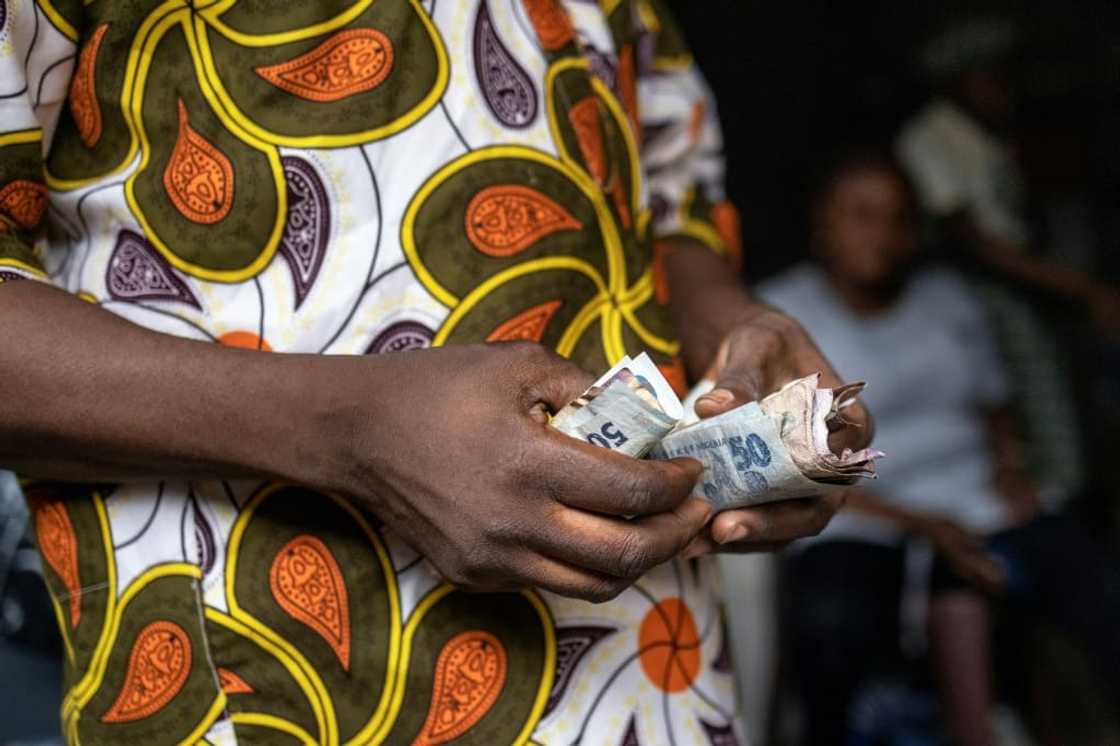
Source: AFP
Although Nigeria's economy rebounded after COVID-19 pandemic, growing three percent in 2022, critics say the recovery has not trickled down to improve conditions for most Nigerians.
Falling oil revenues, growing insecurity from criminal gangs, heavy flooding that hit farming land and impact of Ukraine war have combined to make things worse.
Nigeria’s unemployment rate is about 33 percent while the number of Nigerians living in poverty rose to 133 million or 63 percent of the population in 2022, according to the World Bank.
Youth unemployment now stands at 43 percent, compared to 10 percent prior to Buhari's first administration in 2015.
The naira currency has fallen from an average of 200 naira to a dollar in 2015, to around 750 on the parallel market.
According to Sola Oni of Sofunix Investment, "the inclement operating environment in Nigeria, characterized by inflationary pressure, low purchasing power amongst others, will continue to heighten poverty level."
Recently, Nigerian manufacturers warned they faced a production shortfall of 25 percent if petrol and cash shortages were not resolved soon.
"This situation is not good for anyone, the industry, the government and the ordinary citizen," said Segun Ajayi-Kabir, the leader of the country's manufacturers association.
"You will have a compounded crippling lack of patronage for the domestic manufacturer; the denial of government revenue that would have accrued from consumption taxes and the disruption of the daily life and needs of the average Nigerian."
PAY ATTENTION: Сheck out news that is picked exactly for YOU ➡️ click on “Recommended for you” and enjoy!
Source: AFP

